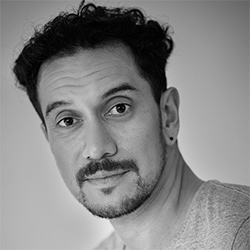Absurdist comedy I’m A Virgo hits its targets: racial politics, capitalism and ‘heroes’
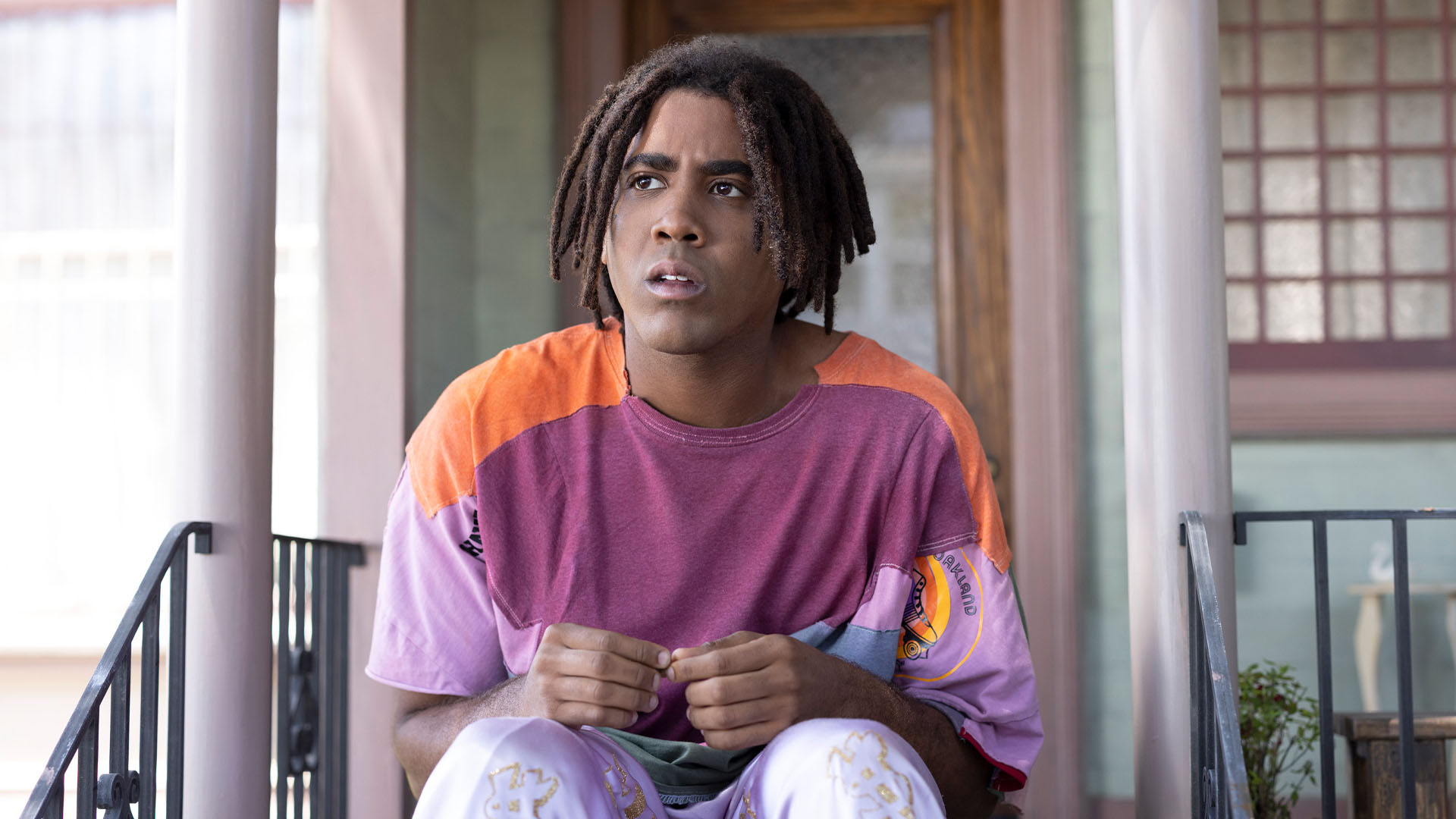
Writer-director Boots Riley’s scathing new comedy I’m A Virgo is a new fantastical coming-of-age series about a 13-foot-tall young Black man. If you’re a Sorry To Bother You fan, this is absolutely the show you’ve been waiting for, writes James Nokise.
“It’s finna blow cause / They got the TV, we got the truth / They own the judges and we got the proof / We got hella people, they got helicopters / They got the bombs and we got the, we got the, we got the guillotine”
Those lines by rapper/activist/director Boots Riley can be heard on his song The Guillotine, by his band The Coup, from the soundtrack to his (so far) one cinematic undertaking, 2018’s indie smash hit Sorry To Bother You.
The lyrics aren’t just an example of his blending of art and activism, but also his artistic philosophy that runs through his music, his film, and now his latest endeavour, I’m A Virgo—a 7 part series on Prime Video about the misadventures of a 13ft Black American teenager.
If you enjoyed the narrative quirks of Sorry To Bother You, as well as the social messages, but really wanted more time in the kind of cinematic wonderland Riley has proven capable of creating, this is absolutely the show you’ve been waiting for.
I’m A Virgo is an absurdist comedy, that somehow, through a healthy dose of surrealism, hits pretty close to home in its critique of not only racial politics, but both capitalist industry and the role of the “hero” within modern society.
Cootie, played by Jarrel Jerome (Moonlight), is born into a version of Oakland that could be straight out of a comic book. Already large as a baby, he is raised secretly by his aunt Lafrancine, played by Carmen Eloggo (Selma) and his uncle Martisse played by Mike Epps (Dolemite Is My Name).
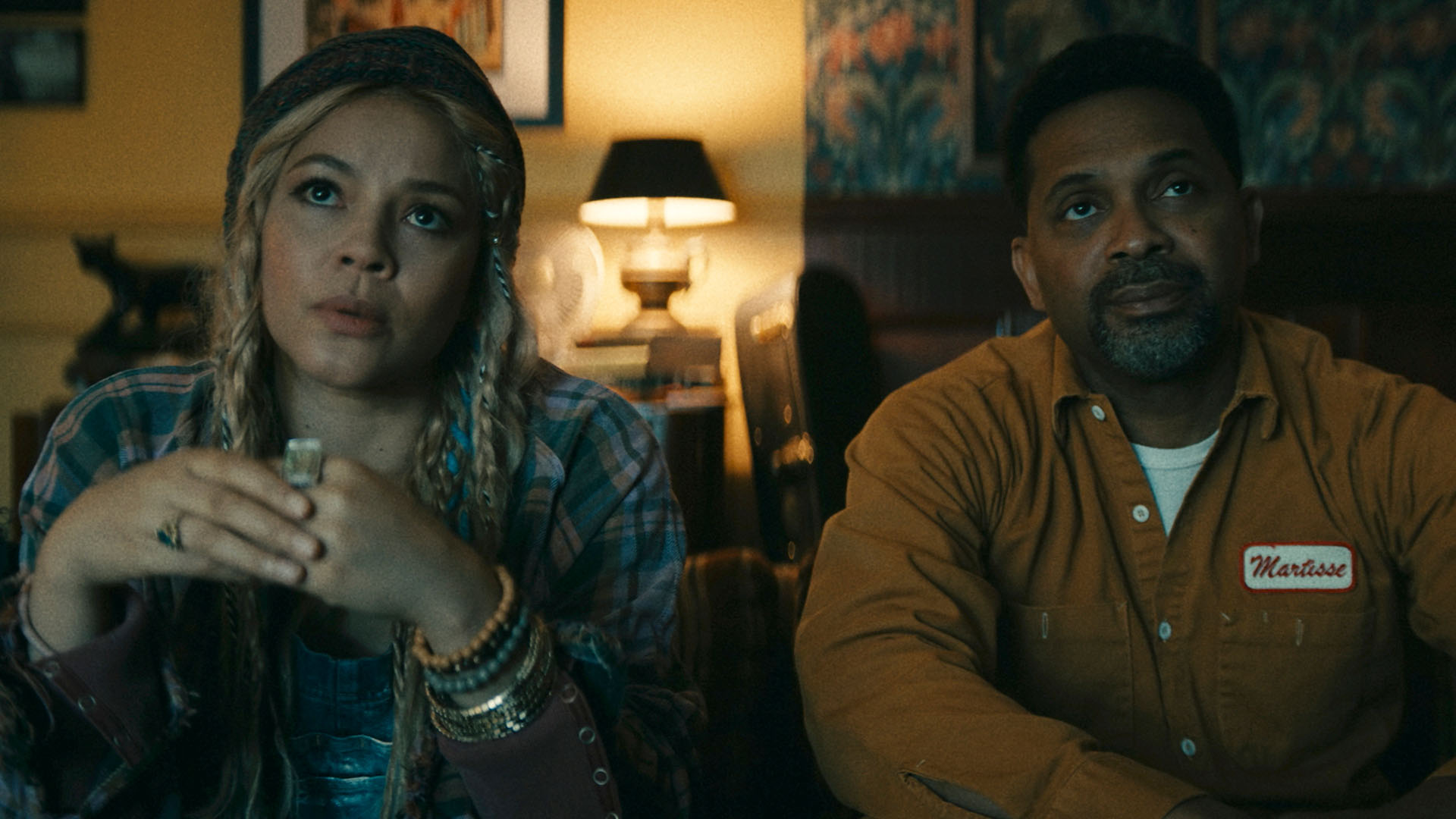
Striking a tone somewhere between Chance from Being There, and Po from Kung Fu Panda, Cootie has the all hangups of a 19-year-old that’s been homeschooled by strict, but loving, parents, mixed with the curiosity of someone who has literally outgrown their childhood home.
“I’m 19 and I heard bass for the first time? That’s abuse,” he laments to his pseudo-parents.
“People are already afraid, and you are a 13-foot black man” says Lafrancine just to make sure any audience members who had missed the allegory are on board. She’s not simply the doting motherly figure, as her involvement in activism with a particular kind of philosophy develops through the show. Martisse, a former musician who’s put his career to the side to raise his deceased sister’s child, is played perfectly by Epps. He still gets fun comedic moments to shine, but they’re wonderfully understated compared to his previous roles.
The family dynamic is working, though straining, when Cootie is discovered by three local activists; Felix (Brett Gray, On My Block), Scat (Allius Barnes, Cruel Summer), and Jones (Kara Young, Chemical Hearts). The four become fast friends and Cooties new comrades take him on a journey beyond his fence, and into a world which has christened him the “Twamp Monster”.
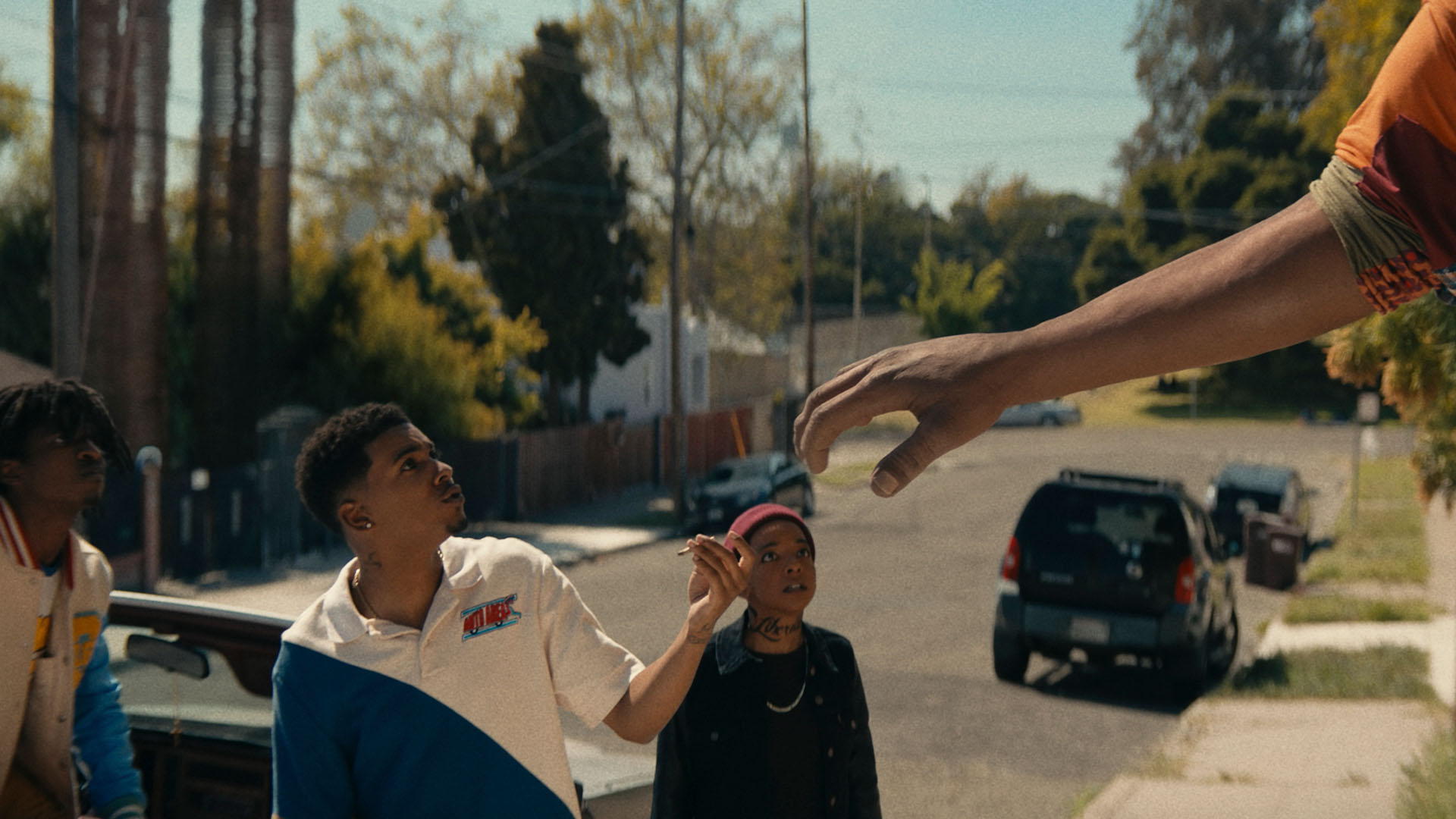
While going through the trials and tribulations you’d expect in a modern coming of age story—getting high for the first time, getting drunk for the first time, getting into fights for the first time, and getting his first fast food burger—Cootie comes along another exceptional person in Flora (Olivia Washington, Breaking), who doesn’t so much have super speed as simply lives at a ferociously faster pace than everyone around her. The visuals displaying her powers are one of the show’s wonderful artistic touches.
The blossoming relationship between a giant and a speedster is both incredibly wholesome and, perhaps surprisingly, wonderfully realistic with their interactions.
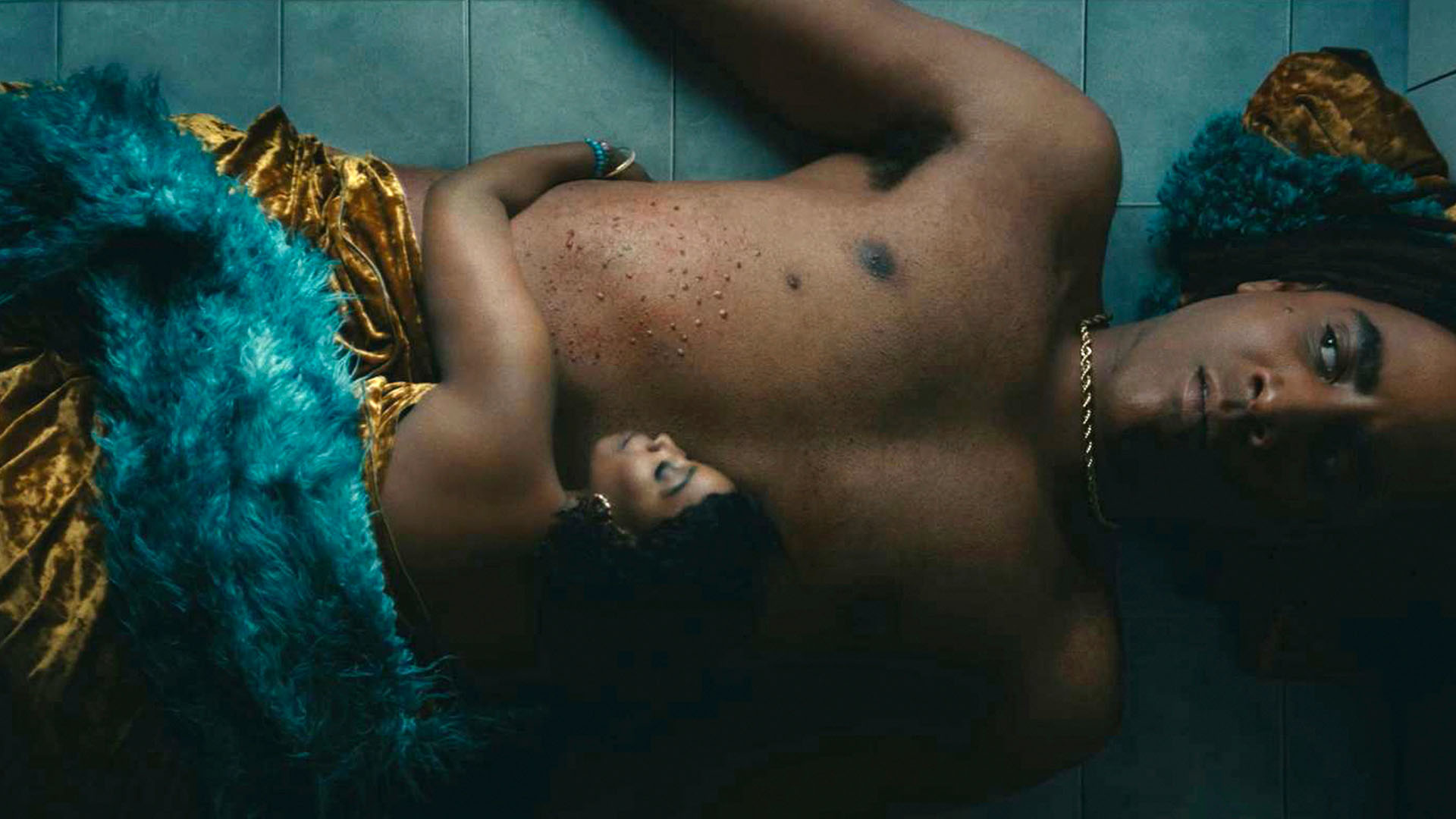
Neither Cootie or Flora set out to be heroes, or are seen as such, they simply have exceptional physical circumstances which can prove cumbersome, but ultimately are just part of life. In fact the show only has one hero, who just happens to be called The Hero, and is Cootie’s childhood hero to boot.
The Hero’s alter-ego is Jay Whittle, a fantastic send up of the Bruce Wayne/Tony Stark billionaire super-genius, played brilliantly by Walton Goggins (Justified, The Righteous Gemstones). If there’s one thing the last few years have showed us, it’s that billionaires are inherently odd, but Whittle is more than a parody. With his character, the show examines what role a “superhero” plays in society, both as a symbol and an extension of justice.
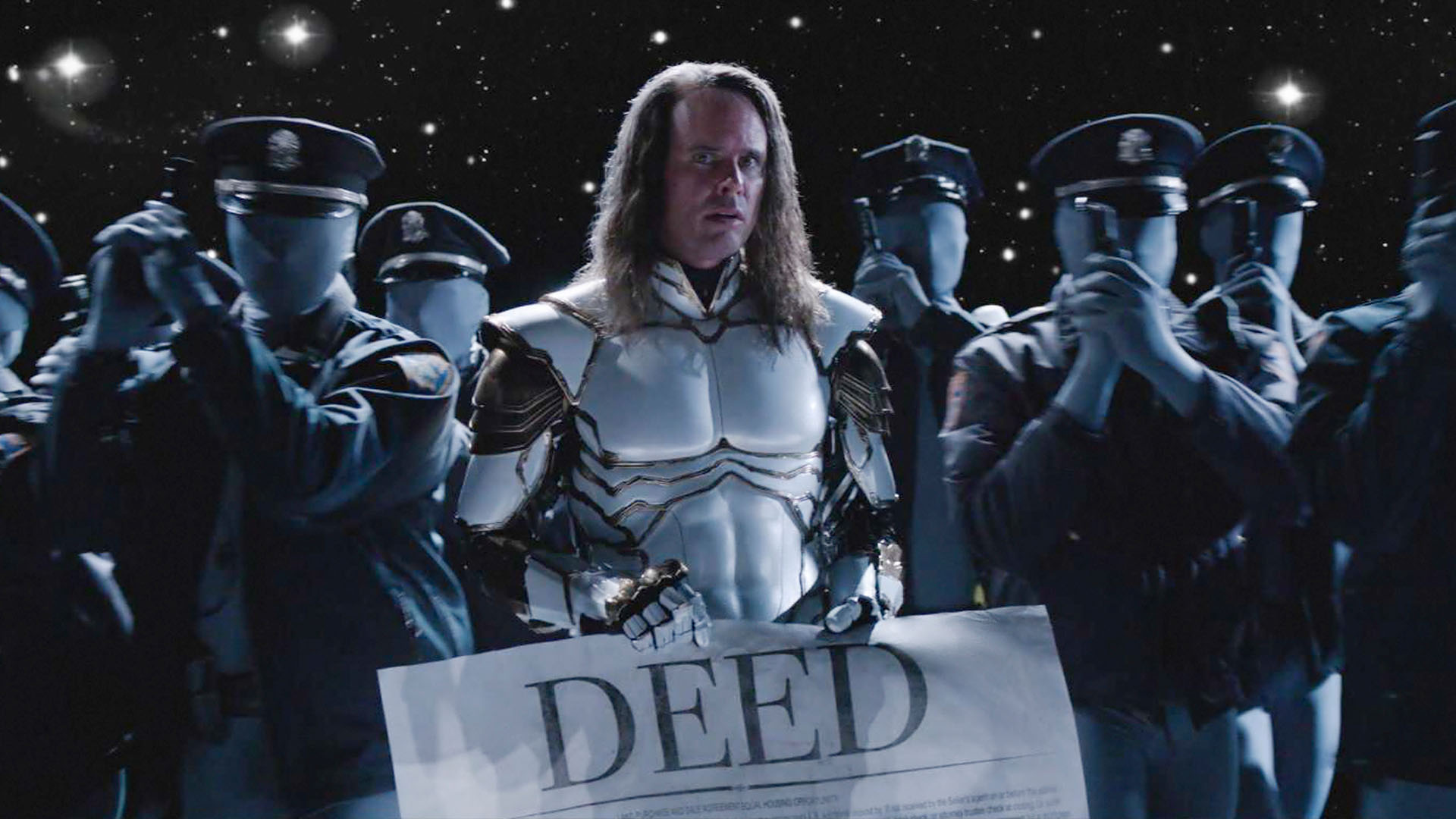
Because with I’m A Virgo, Boots Riley is not just looking at the superhero genre, but interrogating the role of superheroes in society’s problems, both as individuals and as an idea. What is the difference between heroic action, and seeing yourself as the hero? This is nothing new for the rapper turned filmmaker. For over 30 years, he’s combined his own art with local activism both as a performer and local teacher in Oakland. In fact one of the conversations that keeps coming up in the show is what does effective activism look like?
“All art is propaganda” says Whittle to a room of corporate creatives, and it feels both a statement from a character, and a collective raised eyebrow from the show towards the media behemoths that have made superhero art so bankable in the 21st century.
There are some scathing moments of comedy in the series, from the creative choice of who The Hero’s artificial intelligence sounds like, to the creative casting of who shows up on the news as the official “artistic interpreter”. There’s also captivating cartoon tangents, the occasional bit of magic surrealism, and a beautiful score from long-time Riley collaborators, Tune-Yards.
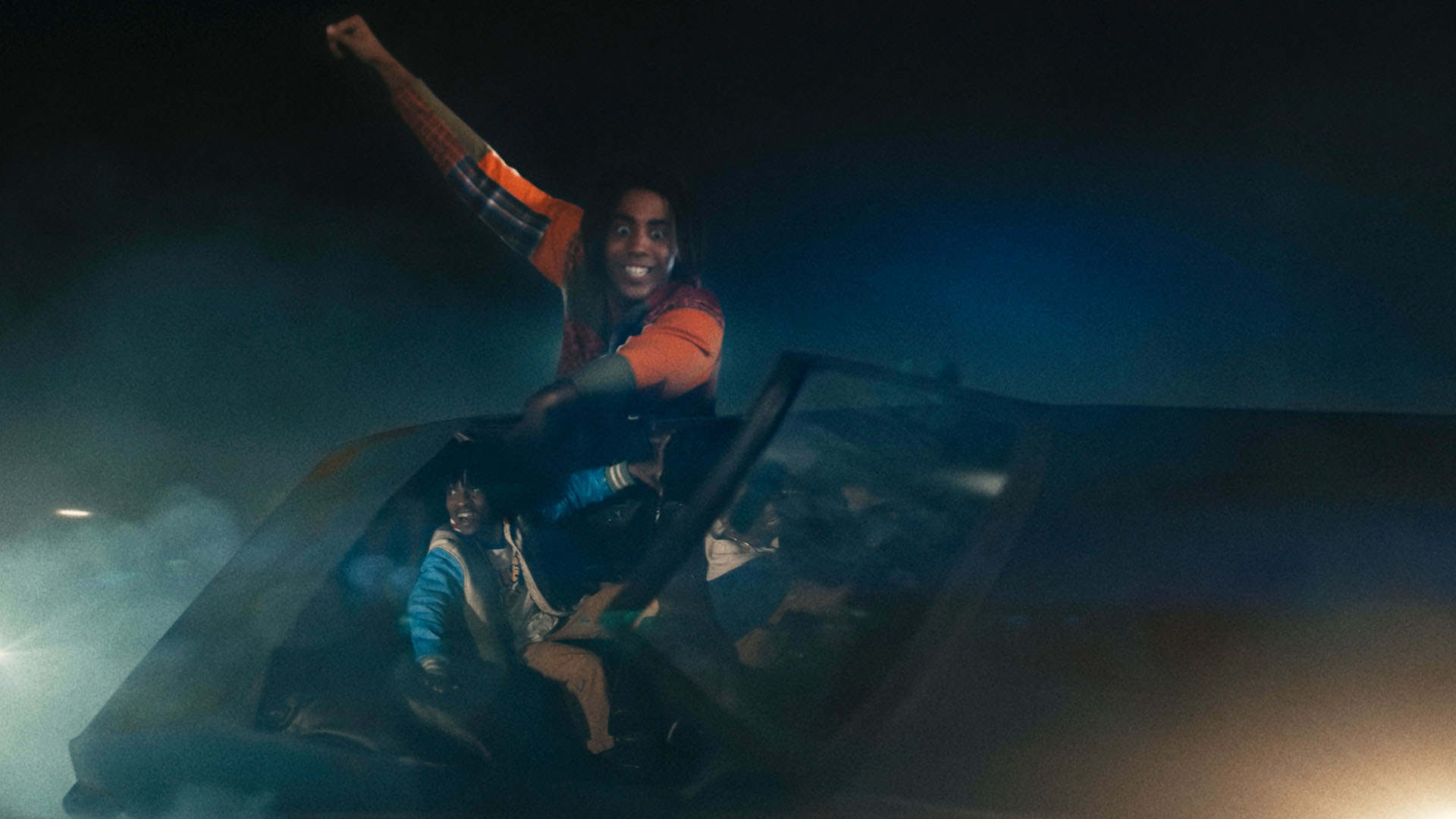
Throughout all seven episodes, the show continues to provoke the audience to think about the relationship between what is shown and what is taught, between heroes and revolutionaries, between feeling good about wanting to see social change, and actually making it happen.
Rather than sermonising, and with a self-aware eye to the dangers of Cult of Personality, I’m A Virgo presents its themes wrapped up in striking visuals, touching relationships, sharp jokes, and a lead character whose growth and exploration leaves plenty of options for season two.
